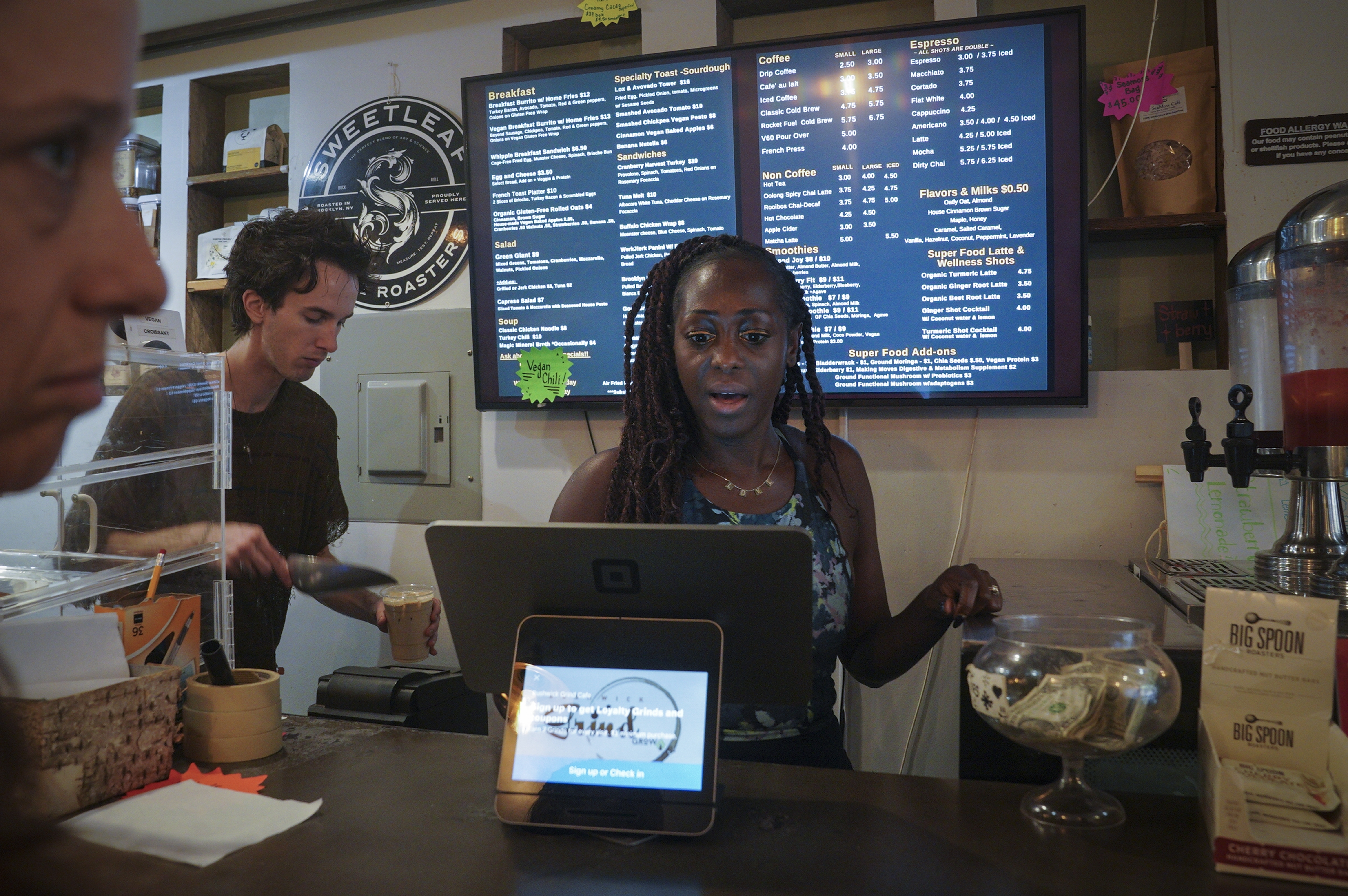Copyright WJLA

On the surface, small business optimism didn’t move much last month. But there’s reason for concern under the hood. The National Federation of Independent Business released its monthly Small Business Optimism Index, which registered a 98.2 in October. That’s hovering right above the 52-year average of 98 and would generally be viewed as an “OK environment for small business owners to operate,” NFIB Executive Director of Research Holly Wade said. “But the challenges that they're facing are significant, certainly, and the uncertainty level is still elevated,” she said. The drop from September was small, just 0.6 points. But the reason for the drop caught Wade’s attention: deteriorating earnings. Earnings trends fell nine points from September. Wade called it a significant decline. “The improvement in earnings over the last five months have been pretty much wiped out, and we're back to where we were in May,” she said. “And so, that did give me pause.” And Wade said more owners are blaming their lower profits on weaker sales, rather than a tight labor market or increased prices like in recent years. Wade said the earnings decline is worth watching, unsure yet if it’s a blip or an emerging trend. In a related finding, more business owners are rating their current business health as fair rather than good. Most still rate their business health as good or even excellent. But the share rating their business health as good dropped to 51% from 57% a month earlier. And the share rating their business health as just fair increased to 33% in October from 27% in September. Wade said that shift matters. And she said it’s notable given the corresponding findings of earnings deterioration. OPTIMISM INDEX The NFIB’s optimism index is based on surveys from small companies across a broad scope of industries. The optimism index hit a post-election high of 105.1 in December, with small business owners anticipating a more friendly regulatory and policy environment. The index sank to 95.8 in April, as President Donald Trump rolled out his reciprocal tariffs. The index rebounded a bit over the summer, hitting 100.3 and 100.8 in July and August, respectively, before small declines over the last two months. Meanwhile, NFIB’s uncertainty index shed 12 points in October. Now 88, the uncertainty index is at its lowest point this year. Uncertainty is a bad thing for small business owners. So, a lower reading could be a good thing. But Wade said the uncertainty index is still 20 points above the 52-year average for the survey. And she said there is both “positive uncertainty and negative uncertainty.” This month, she said they saw the uncertainty index fall because they got fewer “I don't know” answers and more answers projecting negative feelings about the direction of the economy. Meanwhile, 13% of businesses reported that it's a good time to expand. Wade said that reflects caution among small business owners. That share would be higher in a growing economy, she said. RELATED STORY: Consumer sentiment falls to record-low territory as shutdown adds stress And labor quality topped the list of concerns for small businesses. Wade said some industries, particularly construction, are struggling to fill job openings with qualified candidates, despite the overall weakening within the labor market. She pointed to a “mismatch of skills” that are leaving some small businesses struggling to fill openings even when it has become harder for job seekers. “For those looking for a job, if they could quickly figure out new skills in the construction industry, those construction folks would be very happy to have them fill their positions,” she said. Nearly a third of all small business owners reported job openings they could not fill in October. The government shutdown, which appears to be nearing its end, has mostly had an indirect impact on small businesses, Wade said. But there are some that have government contracts and have felt the shutdown more acutely, she said. And small businesses continue to navigate higher tariffs. “Oh, certainly tariffs, it's contributing to the uncertainty element of operating a business, not knowing how these trade policies are going to be resolved, what tariff levels are going to end up at,” Wade said. “It's been kind of a moving situation, a fluid situation, for the last number of months and contributed to higher prices for many small businesses.”



